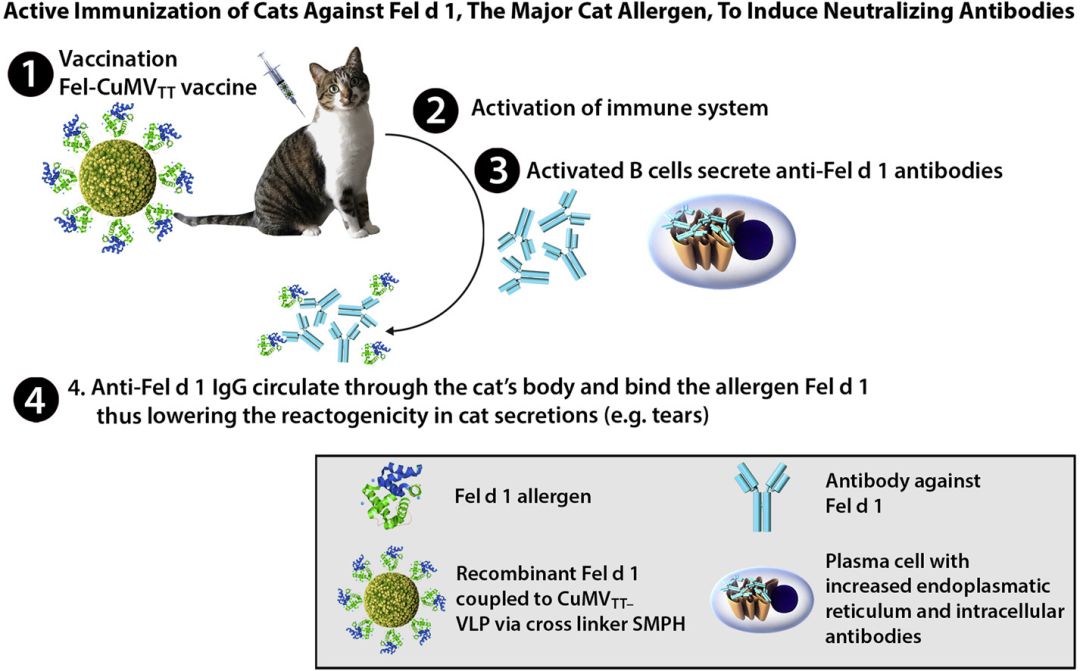Release date:2019-05-17

JACI
[IF:13.1]
Immunization of cats to induce neutralizing antibodies against Fel d 1, the major feline allergen in human subjectsDOI: https://doi.org/10.1016/j.jaci.2019.01.050
Background
Cat allergy in human subjects is usually caused by the major cat allergen Fel d 1 and is found in approximately 10% of the Western population. Currently, there is no efficient and safe therapy for cat allergy available. Allergic patients usually try to avoid cats or treat their allergy symptoms.
Objective
We developed a new strategy to treat Fel d 1–induced allergy in human subjects by immunizing cats against their own major allergen, Fel d 1.
Methods
A conjugate vaccine consisting of recombinant Fel d 1 and a virus-like particle derived from the cucumber mosaic virus containing the tetanus toxin–derived universal T-cell epitope tt830-843 (CuMVTT) was used to immunize cats. A first tolerability and immunogenicity study, including a boost injection, was conducted by using the Fel-CuMVTT vaccine alone or in combination with an adjuvant.
Results
The vaccine was well tolerated and had no overt toxic effect. All cats induced a strong and sustained specific IgG antibody response. The induced anti–Fel d 1 antibodies were of high affinity and exhibited a strong neutralization ability tested both in vitro and in vivo. A reduction in the endogenous allergen level and a reduced allergenicity of tear samples, were observed.
Conclusion
Vaccination of cats with Fel-CuMVTT induces neutralizing antibodies and might result in reduced symptoms of allergic cat owners. Both human subjects and animals could profit from this treatment because allergic cat owners would reduce their risk of developing chronic diseases, such as asthma, and become more tolerant of their cats, which therefore could stay in the households and not need to be relinquished to animal shelters
All Author:
Franziska Thoms , Peter Hunziker Melanie Maudrich Gary T. Jennings Monique Vogel Stefanie Haas Andris Zeltins Regina Hofmann-Lehmann Barbara Riond Jonas Grossmann
Antonia Fettelschoss-Gabriel Gabriela Sen Thomas M. Kündig Martin F. BachmannxMartin
2019-5-4Artical
 杭州浙大迪迅生物基因工程有限公司
杭州浙大迪迅生物基因工程有限公司
